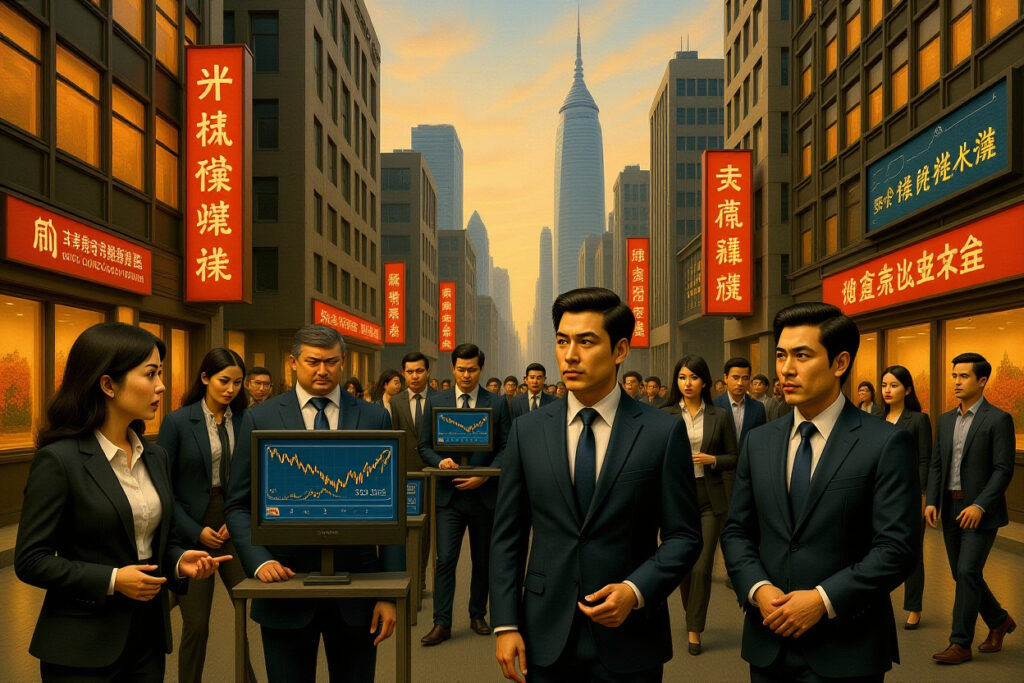Global Experts Weigh In on Chinese Corporate Branding Strategies
The 2025 Phoenix Star Listed Company Awards, organized by Phoenix卫视 (Phoenix卫视) and Phoenix网 (Phoenix Net), has brought together leading international management experts to evaluate and advise Chinese enterprises on strengthening their global footprint. With the participation of renowned academics from Claremont Graduate University’s Drucker School of Management, the event highlights critical pathways for Chinese brands aiming to elevate their global brand influence.
As Chinese companies continue to expand internationally, the insights provided by Bernard Jaworski and David Sanchez offer a timely framework for aligning technological prowess with sustainable brand building. Their recommendations come at a pivotal moment when Chinese firms are navigating complex global markets, regulatory landscapes, and evolving consumer expectations.
Key Takeaways from the 2025 Phoenix Star Awards Review
– Innovation must focus on delivering tangible customer value, not just technological advancement.
– Successful globalization requires blending home-market strengths with localized strategies.
– Building global brand influence hinges on authentic storytelling and social responsibility.
– Digital ecosystems and community engagement are vital for brand trust and recognition.
Innovation Beyond Technology: Creating Real Market Value
Bernard Jaworski, Professor at Claremont Graduate University, emphasized that innovation should be measured by its ability to generate new value for customers and markets. He cited examples such as 地平线 (Horizon Robotics) and its AI solutions for autonomous driving as standout cases where innovation meets market needs.
Applying Drucker’s Principles to Chinese Innovation
Jaworski referenced Peter Drucker’s theory that true innovation must enhance customer satisfaction and address emerging opportunities such as unexpected successes, industry shifts, or demographic changes. He urged Chinese firms to look beyond R&D and consider business model innovation, customer experience, and ecosystem development.
To systematically foster innovation, he advised companies to establish cross-functional teams, invest in global R&D efforts, and accelerate commercialization through strategic partnerships.
Global Expansion: Localizing Strengths for International Success
Despite geopolitical and trade challenges, Chinese companies are continuing their overseas expansion. Jaworski pointed to 美的集团 (Midea Group) as a success story, highlighting its acquisitions of 东芝家电 (Toshiba Home Appliances) and 库卡机器人 (KUKA Robotics), coupled with localized R&D and customer service strategies.
Blending Domestic Advantages with Global Adaptability
Jaworski noted that the most successful globalizing firms leverage core competencies from their home market while adapting products, messaging, and operations to local preferences. This dual approach not only facilitates entry into new markets but also sustains long-term competitive advantages.
Building Global Brand Influence: A Four-Point Framework
David Sanchez, Senior Advisor at the Drucker School, stressed that technological and economic achievements must be paired with softer elements—such as trust, sustainability, and social responsibility—to build lasting global brand influence.
Case Study:比亚迪 (BYD) and Sustainable Branding
Sanchez praised 比亚迪 (BYD) for aligning its brand with innovation and environmental stewardship. However, he urged the company and peers to go further by embedding social responsibility into core business strategies, communicating clearly how green technologies translate into societal benefits, and strengthening emotional connections with global audiences.
Overcoming Challenges in Global Brand Building
Sanchez identified common hurdles for Chinese brands, including country-of-origin biases and cultural barriers. To address these, he outlined four essential strategies for enhancing global brand influence:
– Develop compelling brand narratives centered around universal themes like sustainability and innovation.
– Emphasize customer value through transparent communication and community engagement, as demonstrated by brands like 小米 (Xiaomi).
– Integrate proven technical and operational strengths into global storytelling to build credibility.
– Leverage digital platforms and social media to amplify reach and foster engagement.
Looking Ahead: Implications for Investors and Executives
The insights from the Phoenix Star Awards underscore a strategic shift for Chinese enterprises: from competing on price and volume to winning through brand value and innovation. For global investors, these developments signal new opportunities in companies that prioritize sustainable growth and international brand building.
The full results of the 2025 Phoenix Star Awards will be announced on September 23 at the Phoenix Bay Area Finance Forum. Companies recognized in the awards will gain visibility through Phoenix卫视 (Phoenix卫视) and partner media channels, offering increased exposure to international stakeholders.
For Chinese companies aspiring to global leadership, these four strategies provide a clear roadmap. By focusing on authentic innovation, thoughtful globalization, and meaningful brand storytelling, firms can transform market presence into lasting influence.
To learn more about the awards or submit inquiries, contact fhzx@ifeng.com or call 010-65207661.




